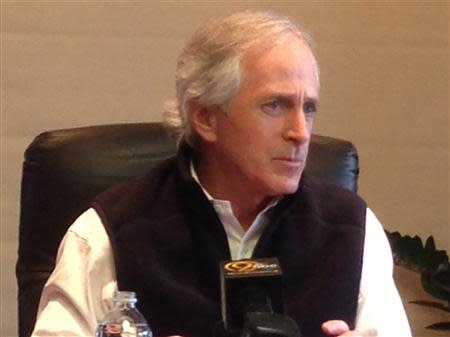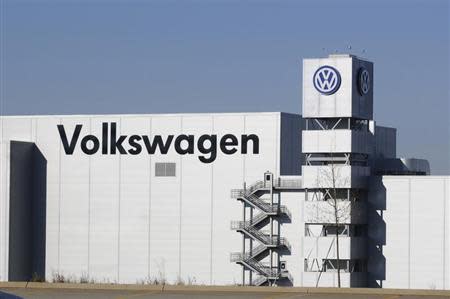As Volkswagen workers vote, Tennessee senator ramps up anti-union talk
By Richard Cowan and Bernie Woodall WASHINGTON/CHATTANOOGA, Tennessee (Reuters) - One of Tennessee's two U.S. senators ramped up his anti-union rhetoric on Thursday in an attempt to sway workers at Volkswagen AG's Chattanooga plant who are voting this week on representation by the United Auto Workers. Republican Senator Bob Corker told Reuters on Thursday that he is "very certain that if the UAW is voted down," the automaker will announce new investment in the plant "in the next couple weeks." Corker's latest remarks contradicted an earlier statement by Frank Fischer, chief executive of VW Chattanooga, that there was "no connection" between the vote at its three-year-old Tennessee plant and a looming decision on whether VW will build a new crossover vehicle there. Volkswagen headquarters in Germany declined further comment and referred to Fischer's statement. The dueling statements injected further uncertainty into the outcome of the three-day election, whose implications extend far beyond Chattanooga. If the vote, which ends on Friday evening, favors the UAW, it would galvanize a union that has been bleeding members over the years. On Wednesday, Corker escalated what has been a seesaw battle between union and anti-union forces, saying he had been "assured" that if workers at the factory reject the UAW, the company would reward the plant with a new product to build. Corker on Thursday issued a second statement, saying his information is better than that of Fischer, the top-ranked VW official at Chattanooga. "After all these years and my involvement with Volkswagen, I would not have made the statement I made yesterday without being confident it was true and factual," said Corker, a former Chattanooga mayor who helped negotiate the VW plant deal. In his interview with Reuters, however, Corker would not disclose the source of his information. It was not immediately clear how much of an impact his comments would have on the secret ballot, which remains too close to call. The UAW's bid to represent VW's 1,550 hourly workers has faced fierce resistance from Tennessee politicians and national conservative groups. Corker has long opposed the union, which he says hurts economic and job growth in Tennessee, a claim that UAW officials dispute. A defeat could scuttle the 400,000-member union's latest attempt to stem a decades-long decline in membership, revenue and influence. It would reinforce the widely held notion that the UAW is unable to overcome the region's deep antipathy toward organized labor. If the union wins, VW would institute a German-style works council, with members elected by plant employees, to make key decisions about how the facility is run. The UAW would bargain over wages and benefits, but cede to the council traditional bargaining prerogatives such as work rules and training. VW has been publicly neutral on the vote. But when the German automaker last week announced an agreement with the UAW to coordinate their messages to workers, the union received a significant boost it has not had in previous, unsuccessful organizing efforts in the South. Voter turnout was reported to be heavy on Wednesday but snow on Thursday could affect how many vote, according to both pro- and anti-UAW workers. The plant produces the mid-size Passat sedan from Monday through Thursdays and is normally closed on Fridays. Earlier this week, Tennessee Republican lawmakers said if the UAW was voted into the Chattanooga plant, Volkswagen could lose millions of dollars in state incentives. In order to entice Volkswagen to build its new U.S. plant in Corker's hometown of Chattanooga, the state gave it about $580 million in incentives. Corker was instrumental in lobbying Volkswagen to put the plant, which opened in 2011, in Chattanooga. Early meetings with Volkswagen officials from Germany were held at his home. (Additional reporting by Ben Klayman in Detroit; editing by Ross Colvin and Matthew Lewis)


